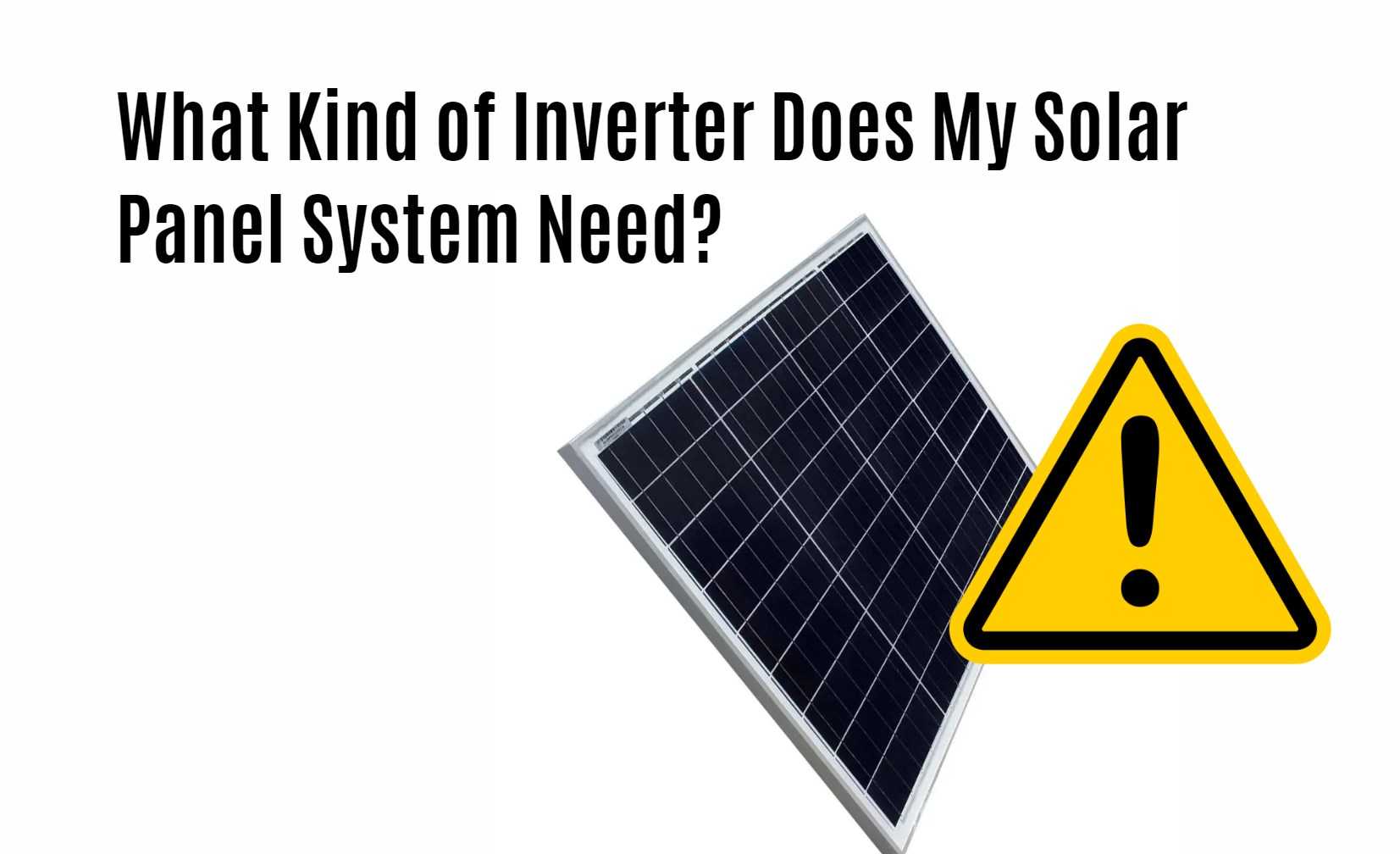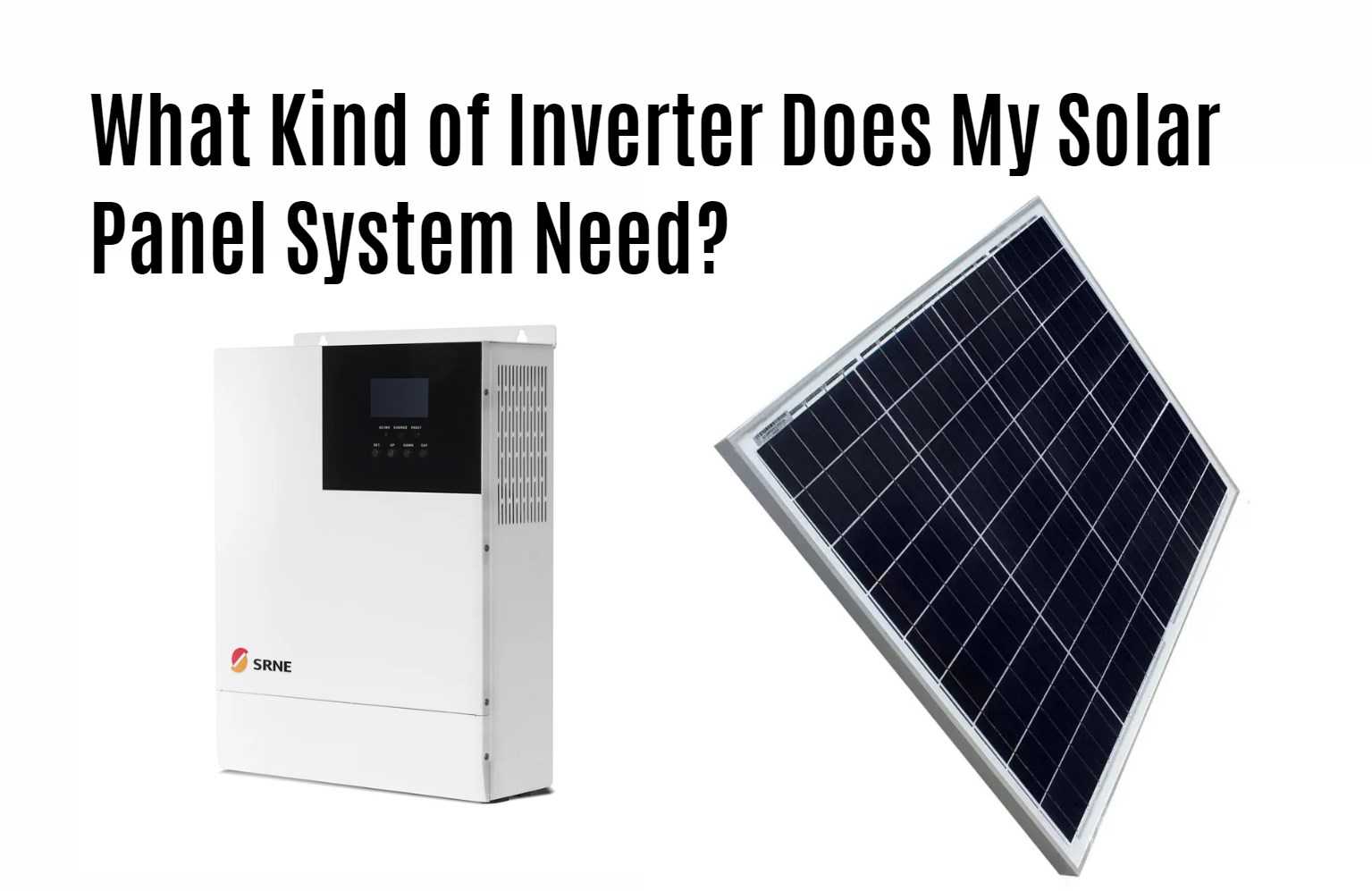-
String Inverters:
String inverters are commonly used in residential solar panel systems. They connect multiple solar panels into an array and send the power to a centralized inverter for DC to AC conversion. This type of inverter is known for its affordability and efficiency, making it a popular choice for residential installations. -
Microinverters:
Microinverters are an alternative option that can be installed on each individual solar panel. They convert the DC power generated by each panel into AC power directly at the panel level. Microinverters offer increased flexibility and can optimize the performance of each panel independently, especially in situations where shading or panel mismatch may occur. -
Power Optimizers:
Power optimizers are devices that work in conjunction with a centralized inverter. They are installed at the panel level and help maximize the power output of each individual panel. By mitigating the impact of shading or panel mismatch, power optimizers can enhance the overall performance of the solar panel system.
Understanding Inverters
What is an Inverter?
-
Function:
An inverter is an apparatus that performs the crucial task of converting direct current (DC) into alternating current (AC). This conversion enables the utilization of DC power sources, such as batteries or solar panels, to power electronics and electrical equipment that require AC voltage. Inverters bridge the gap between DC power sources and AC power requirements. -
Power Conversion:
Inverters employ power electronic devices or circuitry to transform the DC power into AC power. This conversion process is essential for powering AC equipment and appliances. By converting the power from DC to AC, inverters enable the operation of a wide range of electrical devices that rely on AC power, including household appliances, electronic gadgets, and industrial machinery. -
Applications:
Inverters find applications in various industries and settings. They are integral components in solar power systems, where they convert the DC power generated by solar panels into usable AC power for homes and businesses. Inverters are also utilized in uninterruptible power supplies (UPS) to provide backup power during outages. Additionally, inverters play a vital role in electric vehicles, enabling the conversion of DC power from batteries into AC power to drive the vehicle’s motor. Portable power solutions, such as inverters for camping or emergency use, also rely on the conversion capabilities of inverters.
Why Solar Panel Systems Need Inverters
-
DC to AC Conversion:
Solar panels generate direct current (DC) electricity, which is not directly compatible with most electrical appliances and the electrical grid. Inverters play a vital role in converting the DC electricity from solar panels into alternating current (AC) electricity. This conversion enables the utilization of solar power in homes, businesses, and the electrical grid. -
Grid Compatibility:
Inverters ensure that the AC electricity generated by solar panels is compatible with the electrical grid. They convert the DC electricity into AC electricity with the appropriate voltage, frequency, and waveform required by the grid. This compatibility allows the seamless integration of solar power into the existing electrical infrastructure. -
Energy Optimization:
In addition to the DC to AC conversion, inverters optimize the energy generation of solar panel systems. They employ advanced algorithms to track the maximum power point (MPP) of the solar panels. By continuously adjusting the voltage and current, inverters extract the maximum amount of energy from the panels, even under varying sunlight conditions. This optimization maximizes the overall energy output of the solar panel system.
Types of Inverters
Selecting the appropriate inverter is crucial for the optimal performance of your solar panel system. There are three main types of inverters commonly used in residential and commercial solar installations:
1. String Inverters
String inverters are the most prevalent type of inverter used in residential solar systems. They are named for their design, where multiple solar panels are connected in series to form a “string.” These strings are then connected to a single inverter. String inverters are cost-effective and relatively easy to install, making them a popular choice for homeowners.
Advantages:
Wholesale lithium golf cart batteries with 10-year life? Check here.
- Cost-effective
- Simplified installation
- Well-suited for uniform panel arrays
Disadvantages:
- Performance of the entire string can be affected by shading on one panel
- Less flexible in terms of system expansion
2. Central Inverters
Central inverters are similar to string inverters but on a larger scale. They are typically used in commercial and large-scale solar installations. Central inverters aggregate the DC power from multiple strings of solar panels and convert it into AC power.
Want OEM lithium forklift batteries at wholesale prices? Check here.
Advantages:
- High efficiency
- Suitable for large installations
- Lower cost per watt in large systems
Disadvantages:
- Requires significant space for installation
- Complex installation process
- Potentially higher maintenance costs
3. Microinverters
Microinverters are small inverters that are installed directly on each solar panel. Unlike string and central inverters, each panel operates independently, converting its own DC output to AC.
Advantages:
- Maximizes energy production for each panel
- Improved performance in shaded or partially shaded conditions
- Enhanced system monitoring and diagnostics
Disadvantages:
- Higher initial cost
- More complex installation
Selecting the Right Inverter for Your Solar Panel System
Choosing the right inverter involves considering various factors including the size of your solar array, the specific energy needs of your household or business, and the environmental conditions of the installation site. Here are some key considerations:
System Size and Capacity
The capacity of your inverter should match the size of your solar panel system. Overloading an inverter can lead to inefficiencies and potential system failures. It’s essential to calculate the total output of your solar panels and select an inverter that can handle this load.
Shading and Orientation
If your solar panels are likely to experience shading during certain parts of the day, microinverters or power optimizers might be a better choice. These devices allow each panel to operate independently, minimizing the impact of shading on the overall system performance.
Budget Constraints
While microinverters offer superior performance, they come at a higher cost. If budget is a primary concern, string inverters might be more suitable. However, consider the long-term savings and efficiency gains when making your decision.
Future Expansion
If you plan to expand your solar system in the future, choosing an inverter that can easily accommodate additional panels is crucial. Central inverters and microinverters offer greater flexibility for system expansion compared to string inverters.
Installation and Maintenance of Your Inverter
Proper installation and regular maintenance are essential to ensure the longevity and efficiency of your inverter. Here are some best practices:
Installation Guidelines
- Hire a Professional: Always employ a qualified electrician for the installation process to ensure safety and compliance with local regulations.
- Location: Install the inverter in a well-ventilated area, away from direct sunlight and moisture to prevent overheating and corrosion.
- Wiring: Ensure all connections are secure and adhere to the manufacturer’s specifications.
Maintenance Tips
- Regular Inspections: Periodically check the inverter for any signs of damage or wear.
- Cleanliness: Keep the inverter free from dust and debris to maintain optimal performance.
- Firmware Updates: Ensure the inverter’s firmware is up-to-date to benefit from the latest performance enhancements and security features.
Solar Panels, Is It Still Worth It?
-
Energy Savings:
Solar panels offer the opportunity to generate significant energy savings over their lifespan. By harnessing the abundant power of the sun, homeowners can rely less on traditional energy sources and tap into clean and renewable energy. This translates into reduced electricity bills and long-term financial benefits. -
Return on Investment:
While the upfront cost of installing solar panels may seem substantial, homeowners typically recoup their investment within a certain timeframe. Factors such as energy consumption, local electricity rates, available incentives, and the cost of the solar panel system influence the return on investment. By carefully evaluating these factors, homeowners can determine the financial viability of solar panels for their specific situation. -
Environmental Benefits:
Beyond the financial aspects, solar panels offer significant environmental benefits. By generating clean energy, homeowners contribute to a greener and more sustainable future. Solar panels help reduce carbon emissions and dependence on fossil fuels, promoting a cleaner and healthier environment for current and future generations.
Conclusion
When it comes to selecting the right inverter for your solar panel system, there are a number of factors to consider. You need to take into account the size and type of your solar panels, as well as how much power you need from the system. It’s important that you get the right inverter for your specific needs in order to make sure that your system is running efficiently and safely. With this knowledge in hand, we hope that you are now empowered to find the perfect inverter for your home or business’ solar panel system!








